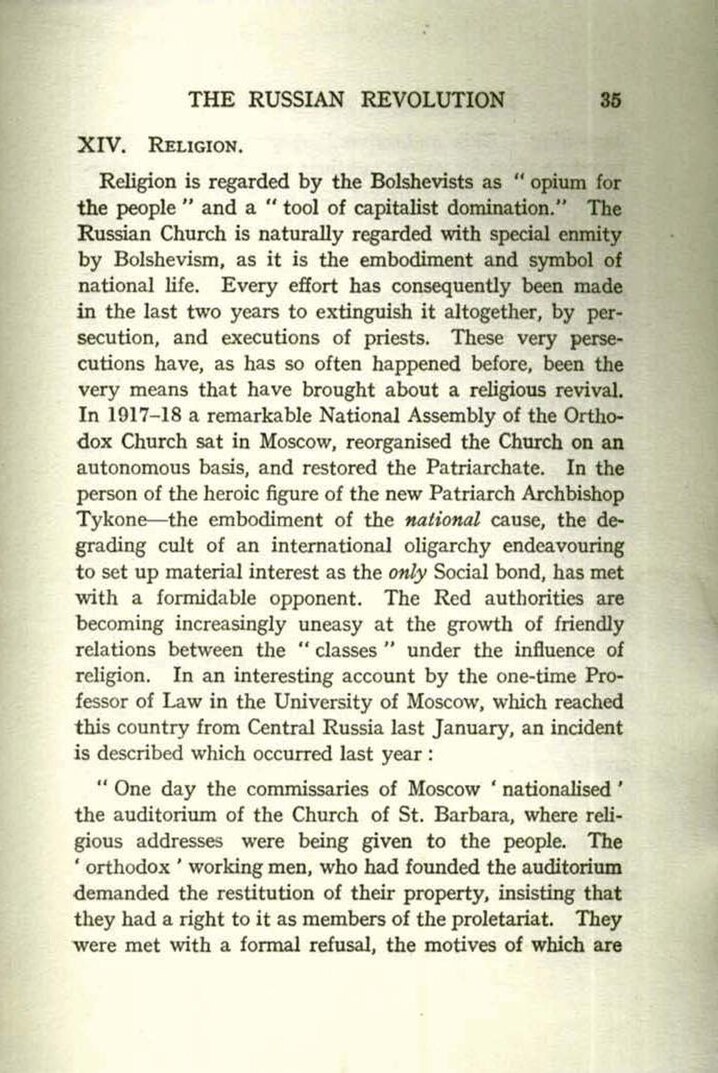XIV. Religion.
Religion is regarded by the Bolshevists as "opium for the people" and a "tool of capitalist domination." The Russian Church is naturally regarded with special enmity by Bolshevism, as it is the embodiment and symbol of national life. Every effort has consequently been made in the last two years to extinguish it altogether, by persecution, and executions of priests. These very persecutions have, as has so often happened before, been the very means that have brought about a religious revival. In 1917–18 a remarkable National Assembly of the Orthodox Church sat in Moscow, reorganised the Church on an autonomous basis, and restored the Patriarchate. In the person of the heroic figure of the new Patriarch Archbishop Tykone—the embodiment of the national cause, the degrading cult of an international oligarchy endeavouring to set up material interest as the only Social bond, has met with a formidable opponent. The Red authorities are becoming increasingly uneasy at the growth of friendly relations between the "classes" under the influence of religion. In an interesting account by the one-time Professor of Law in the University of Moscow, which reached this country from Central Russia last January, an incident is described which occurred last year:
"One day the commissaries of Moscow 'nationalised' the auditorium of the Church of St. Barbara, where religious addresses were being given to the people. The 'orthodox' working men, who had founded the auditorium demanded the restitution of their property, insisting that they had a right to it as members of the proletariat. They were met with a formal refusal, the motives of which are
